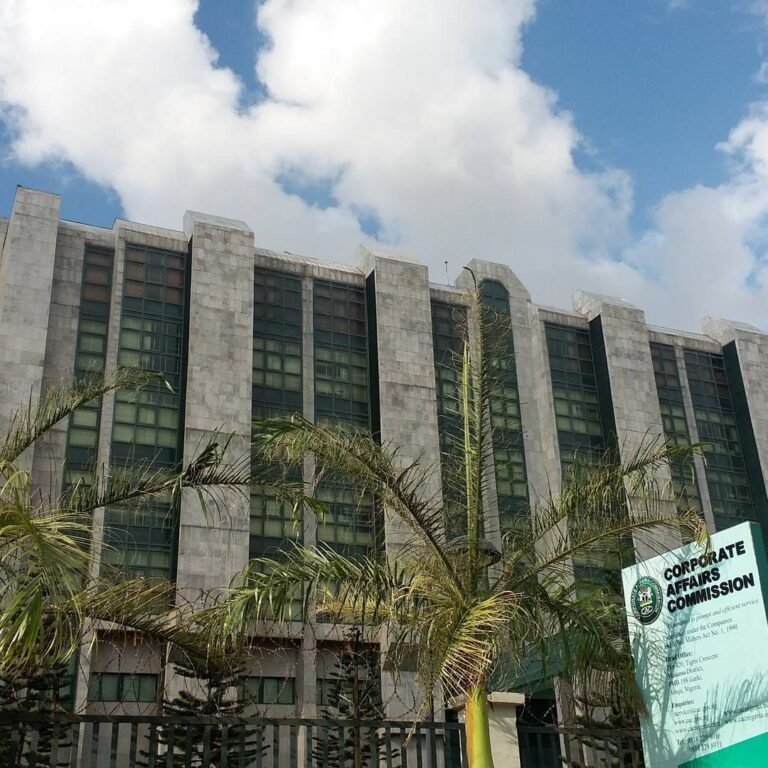In an attempt to boost revenue and overhaul the crumbling economy of the country, Nigeria’s Federal government, under the administration of president Bola Tinubu Ahmed has either introduced new taxes or ensured implementation of the existing one.
The proposed 0.5 percent cybersecurity levy on all electronic transactions is the latest on Tinubu’s litany of multiple taxation.
Though the policy has now been suspended following widespread public backlash, the Central Bank of Nigeria (CBN) had earlier directed a circular to various financial institutions, including commercial, merchant, non-interest, and payment service banks, announcing the 0.5% cybersecurity levy.
The levy is targeted at financial institutions, internet service providers and telecoms companies operating in the country.
Mohammed Idris, the Minister of Information and National Orientation, stated that the policy had been put on hold and is undergoing review.
The suspension glimmers a little respite to households and businesses who were apprehensive about the implications of the levy.
But beyond suspension or review, Nigerians, including economic experts believed the policy should not have a place of existence at all, not even at the time when the country is grappling with an unprecedented level of inflation and economic hardship.
Cybersecurity Levy is a Burden
Kicking against the policy, Abdul-matin Akere, the branch manager of Access Bank at Usmanu Danfodiyo University, Sokoto(UDUS) told The Liberalist that Nigerian government has already overburdened commercial banks with multiple taxations, and proposing 0.5 percent cybersecurity levy again would harm the country’s flourishing digital banking system.
“I feel that the cybersecurity levy is a burden. We already have a lot of burdens we are bearing in Nigeria, and I feel this shouldn’t be added to it,” he said.
Over the years, Nigeria has been making significant strides in digital banking. For instance, in 2021, the country recorded 3.7 billion real-time transactions, making it the world’s sixth most developed real-time payment market. This development indicates the growing number of Nigerians actively involved in digital banking, thus, making the country more digitized and ensuring easy flow of trade.
Nigeria is ranked in 4th place among the world’s economies realizing the maximum economic benefits of real-time payments. The real-time transactions were projected to reach 8.8 billion in 2026, potentially generating $6 billion economic output and additionally contributing one percent to the country’s Gross Domestic Product (GDP).
However, Mr. Akere fears that if the cybersecurity levy is introduced, it will distort the success story of the digital banking system.
“The effect of this cybersecurity levy is that it would still have a reverberating effect on the masses,” he said. “If financial institutions like banks have to pay extra for the cybersecurity levy to CBN that is supposed to protect banks, then the cost of services rendered by banks to individuals will also increase.”
Mr. Akere’s assertion echoes the concerns of Dr Audu Bello, an economic expert and lecturer at the Department of Economics in UDUS.
Dr. Bello said if financial institutions and others are mandated to pay for cybersecurity, the cost of living in the country would continue to worsen.
“Cybersecurity levy would increase the cost of goods and services, and the masses would bear the brunt. Because the moment you introduce a tax to a provider of service, the provider of the service will add it to his/her cost of production, and consequently, the price of the service goes higher.”
“So, whether we like it or not, it’s the poor masses and not the financial institutions and others that will fund cybersecurity.”
Cybersecurity is an Indirect Tax to Masses
Dr. Bello said the introduction of the cybersecurity levy is complete nonsense.
“Does it look like the government does not have any security arrangement over our cyberspace?”
“There’s no need to introduce a cybersecurity levy again. Because as a country, your security is first, and you don’t need the masses to contribute to secure cyberspace. I have never heard of that before. It’s the responsibility of the government to secure cyberspace.”
He advised the government to take a percentage from whatever it’s allocating to states to fund cybersecurity, adding that whether the levy is imposed on financial institutions, internet service providers, or telecoms, the effect would still bounce back on the masses.
“It’s an indirect tax on the masses. The service providers will not feel it that much. They will accommodate it and add it to their cost of services, and the masses will keep suffering.”
Contrary to the target of the policy—to secure cyberspace, Dr. Bello told The Liberalist that the introduction of the cybersecurity levy will not protect Nigerian cyberspace. What will do that is making effective the existing institutions like the Economic and Financial Crimes Commission (EFCC) and the Police to regulate the activities of cyberspace.
“The government should always look at who will be the final bearer of a policy before you even announce it.”
Meanwhile, the cybersecurity levy is not the only tax on the neck of electronic transactions. There are five other different taxes and levies, including VAT fee, Stamp duty and Transfer fee, placed on electronic payment.
The real cost of transferring N10,000, according to StatiSense, is N76 in 2023. This year the cost has skyrocketed to N134.88, leaving the real value of the amount at N9,865.12, after deducting all taxes. Adding the cybersecurity levy on the scale would leave the real value of the amount at N9,864.62.
Dr. Bello believes that life is very difficult in Nigeria as a result of the inhumane policies of the government.
The president Tinubu’s administration has introduced several policies which experts believed would make life miserable for Nigerians.
For instance, the Nigerian Electricity Regulatory Commission approved a 300 percent hike in electricity tariff from N68 to N225 per kilowatt-hour. This increment is for urban consumers, also known as Band A consumers in the country.
In February 2024, the Expatriate Employment Levy (EEL) was introduced. The policy, which has now been suspended, was initiated to oversee expatriate employment in the country as well as necessitate employers pay a levy for hiring expatriates.
All these are coming when the country is grappling with an unprecedented level of inflation. Food inflation currently stands at 40.1% while the general inflation is 33%. To stem the tide of inflation, this year alone, the central bank has increased interest rates three times, with the latest coming on Tuesday, 21st May.
Cybersecurity Levy Threatens Financial Inclusion
According to a 2023 Finance Survey, financial inclusion in Nigeria has increased to 74 percent last year, up from 68 percent the previous year. This pegged the adult population still excluded from banking at just 28.8 million.
With the growing number of unbanked population in the country, Segun Ajibola, a professor of Economics at Babcock University and past president of Chartered Institute of Bankers of Nigeria, fears that the introduction of the cybersecurity levy would cripple financial inclusion.
“As a professional banker, I am concerned about the low level of financial inclusion in Nigeria,” he said. “The country is still struggling with the aftermath of the Naira redesign which created apprehension for bank customers and the entire economy. And it is in the best interest of monetary regulation to have a much bigger chunk of the money supply within the banking system; to keep faith with the cashless policy and promote efficacy of the monetary policy.”
Professor Ajibola said the currency redesign worked against the financial inclusion drive as masterminded by financial sector regulators and operators.
“I therefore advise that the implications of cyber security on the much touted financial inclusion drive of this era should be evaluated seriously. Nobody wishes that currency notes should start their ways under the bed/pillow cases, cabinets and so on, all with a view to avoiding cyber security levy and like charges on deposits and withdrawals, etc.”














